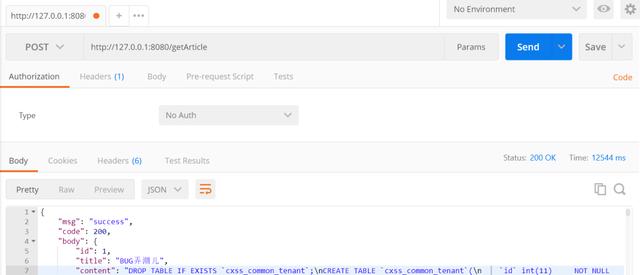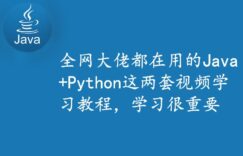简介
项目中,请求时发送超大 json 数据外;响应时也有可能返回超大 json 数据。《Springboot 之 Filter 实现 Gzip 压缩超大 json 对象》实现了请求数据的 gzip 压缩。本篇通过 filter 实现对响应 json 数据的压缩。先了解一下以下两个概念:
- 请求头: Accept-Encoding : gzip 告诉服务器,该浏览器支持 gzip 压缩
- 响应头: Content-Encoding : gzip 告诉浏览器,输出信息使用了 gzip 进行压缩

pom .xml 引入依赖
<project xmlns="#34; xmlns:xsi="#34;
xsi:schemaLocation=" #34;>
<modelVersion>4.0.0</modelVersion>
<groupId>com.olive</groupId>
<artifactId>response-compression</artifactId>
<version>0.0.1-SNAPSHOT</version>
<packaging>jar</packaging>
<name>response-compression</name>
<url>
<parent>
<groupId>org.springframework.boot</groupId>
<artifactId>spring-boot-starter-parent</artifactId>
<version>2.5.14</version>
<relativePath /> <!-- lookup parent from repository -->
</parent>
<properties>
<project.build.sourceEncoding>UTF-8</project.build.sourceEncoding>
< maven .compiler.source>8</maven.compiler.source>
<maven.compiler.target>8</maven.compiler.target>
</properties>
<dependencies>
<dependency>
<groupId>org.springframework.boot</groupId>
<artifactId>spring-boot-starter-test</artifactId>
<scope>test</scope>
</dependency>
<dependency>
<groupId>org.projectlombok</groupId>
<artifactId>lombok</artifactId>
</dependency>
<dependency>
<groupId>org.springframework.boot</groupId>
<artifactId>spring-boot-starter-web</artifactId>
</dependency>
<dependency>
<groupId>com.alibaba.fastjson2</groupId>
<artifactId> fastjson 2</artifactId>
<version>2.0.14</version>
</dependency>
<dependency>
<groupId>commons-io</groupId>
<artifactId>commons-io</artifactId>
<version>2.9.0</version>
</dependency>
</dependencies>
</project>
对Response进行包装
GzipResponseWrapper 类重新定义了输出流,拦截需要输出的数据,直接缓存到 byte ArrayOutputStream 中。
package com.olive.filter;
import lombok.extern.slf4j.Slf4j;
import javax .servlet.ServletOutputStream;
import javax.servlet.WriteListener;
import javax.servlet.http.Http servlet Response;
import javax.servlet.http.HttpServletResponseWrapper;
import java .io.*;
@Slf4j
public class GzipResponseWrapper extends HttpServletResponseWrapper {
/**
* 字节数组缓冲流,用来保存截获到的输出数据
*/ private ByteArrayOutputStream buffer;
/**
* 重新定义servlet输出流,改变输出目的地将响应内容输出到给定的字节数组缓冲流中
*/ private GzipResponseWrapper.CustomServletOutputStream servletOutputStream;
/**
* 同上
*/ private PrintWriter writer;
public GzipResponseWrapper(HttpServletResponse response) {
super(response);
//original HttpServletResponse object
buffer = new ByteArrayOutputStream();
servletOutputStream = new GzipResponseWrapper.CustomServletOutputStream(buffer);
try {
writer = new PrintWriter(new OutputStreamWriter(buffer, response.getCharacterEncoding()), true);
} catch (UnsupportedEncoding Exception e) {
log.error("GZipHttpServletResponse", e);
}
}
@Override
public Servlet OutputStream getOutputStream() throws IOException {
return servletOutputStream;
}
@Override
public PrintWriter getWriter() throws IOException {
return writer;
}
@Override
public void flushBuffer() throws IOException {
if (servletOutputStream != null) {
servletOutputStream.flush();
}
if (writer != null) {
writer.flush();
}
}
/**
* 向外部提供一个获取截获数据的方法
* @return 从response输出流中截获的响应数据
*/ public byte[] getOutputData() throws IOException {
flushBuffer();
return buffer.toByteArray();
}
private static class CustomServletOutputStream extends ServletOutputStream {
/**
* 字节数组缓冲流,用来保存截获到的输出数据
*/ private ByteArrayOutputStream buffer;
public CustomServletOutputStream( Byte ArrayOutputStream buffer) {
this.buffer = buffer;
}
@Override
public boolean isReady() {
return true;
}
@Override
public void setWriteListener(WriteListener listener) {
}
/**
* 重写输出流相关的方法
* 将输出数据写出到给定的ByteArrayOutputStream缓冲流中保存起来
* @param b 输出的数据
* @throws IOException
*/ @Override
public void write(int b) throws IOException {
buffer.write(b);
}
}
}
定义GzipFilter对输出进行拦截
GzipFilter 拦截器获取缓存的需要输出的数据,进行压缩,在输出数据之前先设置响应头 Content-Encoding : gzip 。
package com.olive.filter;
import lombok.extern.slf4j.Slf4j;
import org.springframework.http.Http header s;
import javax.servlet.*;
import javax.servlet.http.HttpServlet request ;
import javax.servlet.http.HttpServletResponse;
import java.io.*;
import java.util.zip.GZIPOutputStream;
/**
* 压缩过滤器
*
* 功能:对于返回给客户端的数据进行gzip压缩,提高响应速度
* 实现说明:
* 要对response对象的输出数据进行gzip压缩,首先得拿到后面servlet(controller)进行业务处理后往response对象里写入的数据
* 可以通过重写response对象,修改该对象内部的输出流,使该流写出数据时写出到给定的字节数组缓冲流当中,
* 并在重写后的response对象内部提供一个获取该字节数组缓冲流的方法,这样就可以截获响应数据
* 然后就可以对截获的响应数据通过Gzip输出流进行压缩输出即可;
* 因为响应数据是gzip压缩格式,不是普通的文本格式所以需要通过response对象(响应头)告知浏览器响应的数据类型
*/@Slf4j
public class GzipFilter implements Filter {
private final String GZIP = "gzip";
public void destroy() {
log.info("GzipFilter destroy");
}
public void doFilter(ServletRequest req, ServletResponse resp, FilterChain chain) throws ServletException, IOException {
log.info("GzipFilter start");
HttpServletRequest request = (HttpServletRequest) req;
HttpServletResponse response = (HttpServletResponse) resp;
String acceptEncoding = request.get Header (HttpHeaders.ACCEPT_ENCODING);
//searching for 'gzip' in ACCEPT_ENCODING header
if( acceptEncoding != null && acceptEncoding.indexOf(GZIP) >= 0){
GzipResponseWrapper gzipResponseWrapper = new GzipResponseWrapper(response);
//pass the customized response object to controller to capture the output data
chain.doFilter(request, gzipResponseWrapper);
//get captured data
byte[] data = gzipResponseWrapper.getOutputData();
log.info("截获到数据:" + data.length + " bytes");
//get gzip data
ByteArrayOutputStream gzipBuffer = new ByteArrayOutputStream();
GZIPOutputStream gzipOut = new GZIP Output Stream(gzipBuffer);
gzipOut.write(data);
gzipOut.flush();
gzipOut.close();
byte[] gzipData = gzipBuffer.toByteArray();
log.info("压缩后数据:" + gzipData.length + " bytes");
//set response header and output
response.setHeader(HttpHeaders.CONTENT_ENCODING, GZIP);
response.getOutputStream().write(gzipData);
response.getOutputStream().flush();
}else{
chain.doFilter(req, resp);
}
}
public void init(FilterConfig config) throws ServletException {
log.info("GzipFilter init");
}
}
注册 GzipFilter 拦截器
package com.olive.config;
import com.olive.filter.GzipFilter;
import org.springframework.boot.web.servlet.FilterRegistrationBean;
import org.springframework.context. annotation .Bean;
import org.springframework.context.annotation.Configuration;
/**
* 注册filter
*/@Configuration
public class FilterRegistration {
@Bean
public FilterRegistrationBean<GzipFilter> gzipFilterRegistrationBean() {
FilterRegistrationBean<GzipFilter> registration = new FilterRegistrationBean<>();
//Filter可以new,也可以使用依赖注入 Bean
registration.setFilter(new GzipFilter());
//过滤器名称
registration.setName("gzipFilter");
//拦截路径
registration.addUrlPatterns("/*");
//设置顺序
registration.setOrder(1);
return registration;
}
}
定义 Controller
该 Controller 非常简单,主要读取一个大文本文件,作为输出的内容。
package com.olive.controller;
import java.io. File ;
import java.util. HashMap ;
import java.util.Map;
import com.olive.vo.ArticleRequestVO;
import org.apache.commons.io.FileUtils;
import org.springframework.web.bind.annotation.RequestMapping;
import org.springframework.web.bind.annotation.RestController;
@RestController
public class TestController {
@RequestMapping("/getArticle")
public Map<String, Object> getArticle(){
Map <String, Object> result = new HashMap<>();
result.put("code", 200);
result.put("msg", "success");
byte[] bytes = null;
try {
bytes = FileUtils.readFileToByteArray(new File("C:Users2230Desktop凯平项目资料改装车项目CXSSBOOT_DB_DDL-1.0.9.sql"));
}catch (Exception e){
}
String content = new String(bytes);
ArticleRequestVO vo = new ArticleRequestVO();
vo.setId(1L);
vo.setTitle("BUG弄潮儿");
vo.setContent(content);
result.put("body", vo);
return result;
}
}
Controller 返回数据的 VO
package com.olive.vo;
import lombok.Data;
import java.io.Serializable;
@Data
public class ArticleRequestVO implements Serializable {
private Long id;
private String title;
private String content;
}
定义 Springboot 引导类
package com.olive;
import org.springframework.boot.SpringApplication;
import org.springframework.boot.autoconfigure.SpringBootApplication;
@SpringBootApplication
public class Application {
public static void main(String[] args) {
SpringApplication.run(Application.class);
}
}
测试
测试的curl
curl -X POST



